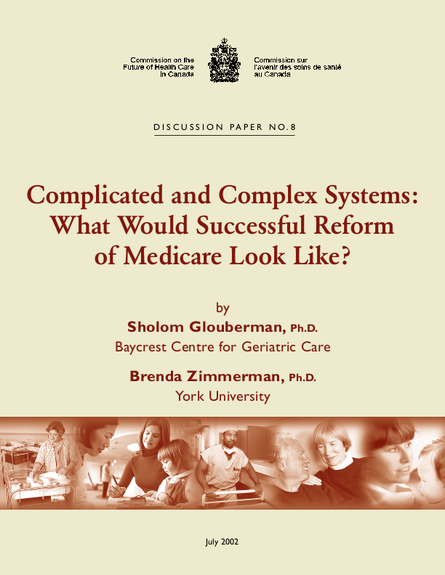
This paper distinguishes between simple, complicated, and complex problems, and argues that health care systems are complex rather than merely complicated. In simple problems like cooking by following a recipe, the recipe is essential. It is often tested to assure easy replication without the need for expertise. Recipes produce standardised products, and the best recipes give good results every time. In solving complicated problems, like sending a rocket to the moon, formulas or recipes are necessary but often not sufficient; high levels of expertise in a variety of fields are necessary for success. Sending one rocket increases assurance that the next mission will be a success. In some critical ways, rockets are similar to each other, and because of this there can be relatively high certainty of outcome. In complex problems, like raising a child, formulas have a much more limited application, because every child is unique. Raising one child provides experience but no assurance of success with the next. Although expertise can contribute to the process in valuable ways, it is neither necessary nor sufficient to assure success, and there is always uncertainty about the outcome. But the complexity and uncertainty of the process do not lead to the conclusion that it is impossible to raise a child.